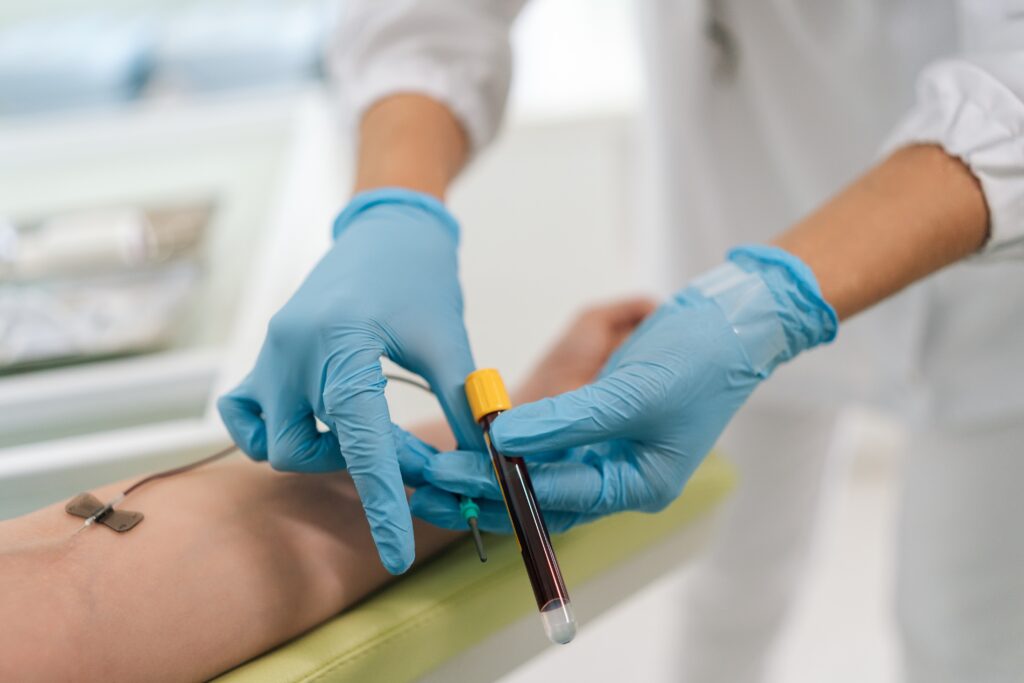Artificial intelligence (AI) is revolutionizing how doctors analyze blood tests, offering early warnings of diseases. From spotting subtle patterns to decoding complex data, AI is opening new avenues in medical research and treatment.
Early Detection of Ovarian Cancer with AI
Ovarian cancer is “rare, underfunded, and deadly,” says Audra Moran, head of the Ovarian Cancer Research Alliance (OCRA). Early detection significantly improves survival rates, but symptoms often appear only after the cancer has spread. Most ovarian cancers begin in the fallopian tubes, making early diagnosis critical.
“Detecting ovarian cancer five years before symptoms appear could reduce mortality,” says Ms. Moran. Emerging AI-powered blood tests, aim to spot early signs of this cancer. AI also accelerates blood tests for other deadly conditions like pneumonia.
Dr. Daniel Heller, a biomedical engineer at Memorial Sloan Kettering Cancer Center, is leading a team that developed nanotube-based testing technology. These nanotubes, 50,000 times smaller than a human hair, emit fluorescent light when exposed to certain blood molecules. By analyzing these light patterns, AI can identify diseases that humans cannot detect manually.
Dr. Heller explains, “The patterns are too subtle for humans. AI finds the differences we cannot see.” His team uses machine-learning algorithms to analyze data, identifying ovarian cancer and distinguishing it from other gynecological diseases.
A significant challenge is the rarity of ovarian cancer, which limits the available data for training algorithms. Much of the existing data remains siloed in hospitals, making collaboration difficult. Despite this, the AI system outperformed current cancer biomarkers in early trials. Ongoing research focuses on improving accuracy using larger datasets.
Dr. Heller envisions broader applications: “We aim to triage all gynecological diseases, giving doctors tools to identify whether it’s cancer and what type.” He believes this technology could be ready in three to five years.
AI Speeds Up Blood Tests for Deadly Infections
AI isn’t just improving cancer detection; it also streamlines blood tests for infections like pneumonia. For cancer patients, pneumonia can be life-threatening, and identifying the precise pathogen quickly is crucial. Karius, a California-based company, uses AI to identify pneumonia pathogens within 24 hours. This contrasts sharply with traditional methods, which require multiple tests over several days, costing up to $20,000.
Karius CEO Alec Ford explains, “Our test reduces the need for 15 to 20 separate tests in the first week.” Their AI platform compares patient samples to a vast microbial DNA database containing billions of data points, pinpointing pathogens with remarkable precision. “This would be impossible without AI,” Ford adds.
AI platforms like Milton, developed by Dr. Slavé Petrovski, also showcase the technology’s potential. Using biomarkers in UK Biobank data, Milton identifies 120 diseases with over 90% accuracy. “These patterns are too complex for humans to discern,” says Dr. Petrovski, a researcher at AstraZeneca. AI’s ability to analyze entire patterns, not just single biomarkers, is key to its success.
Dr. Heller employs similar AI techniques in his work on ovarian cancer. “Sensors detect proteins and molecules in the blood, but we don’t always know which are cancer-specific,” he says. This pattern-matching capability is a breakthrough in disease detection.
Challenges and the Road Ahead
Despite its promise, AI’s progress faces hurdles. Data sharing remains a significant obstacle, with much information locked away in hospital systems. “People aren’t sharing data, or there’s no mechanism to do it,” says Ms. Moran. OCRA is funding a large-scale patient registry to provide researchers with access to essential data for training AI systems.
“We’re still in the wild west of AI,” Ms. Moran concludes. With initiatives like patient registries and advances in technology, AI’s potential to transform blood testing and disease detection is immense, marking a new era in healthcare.
